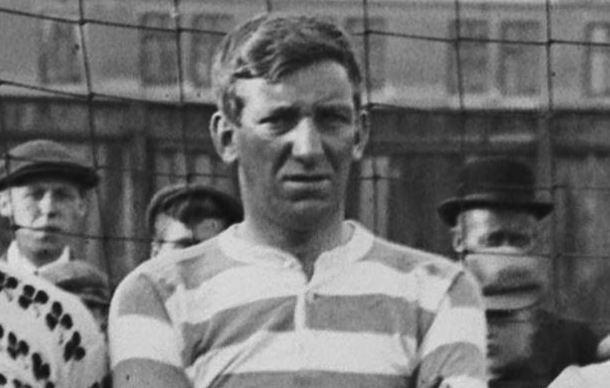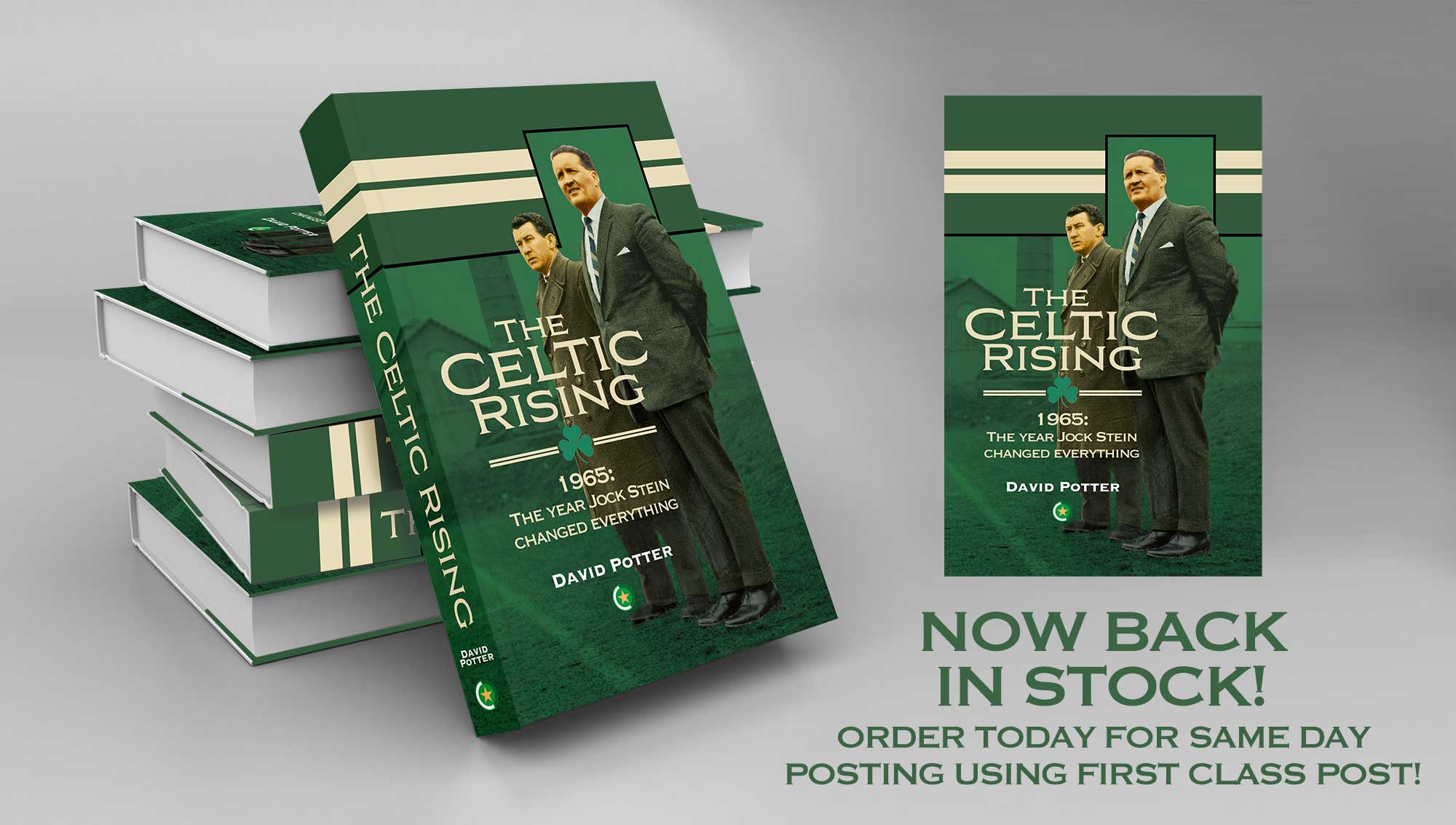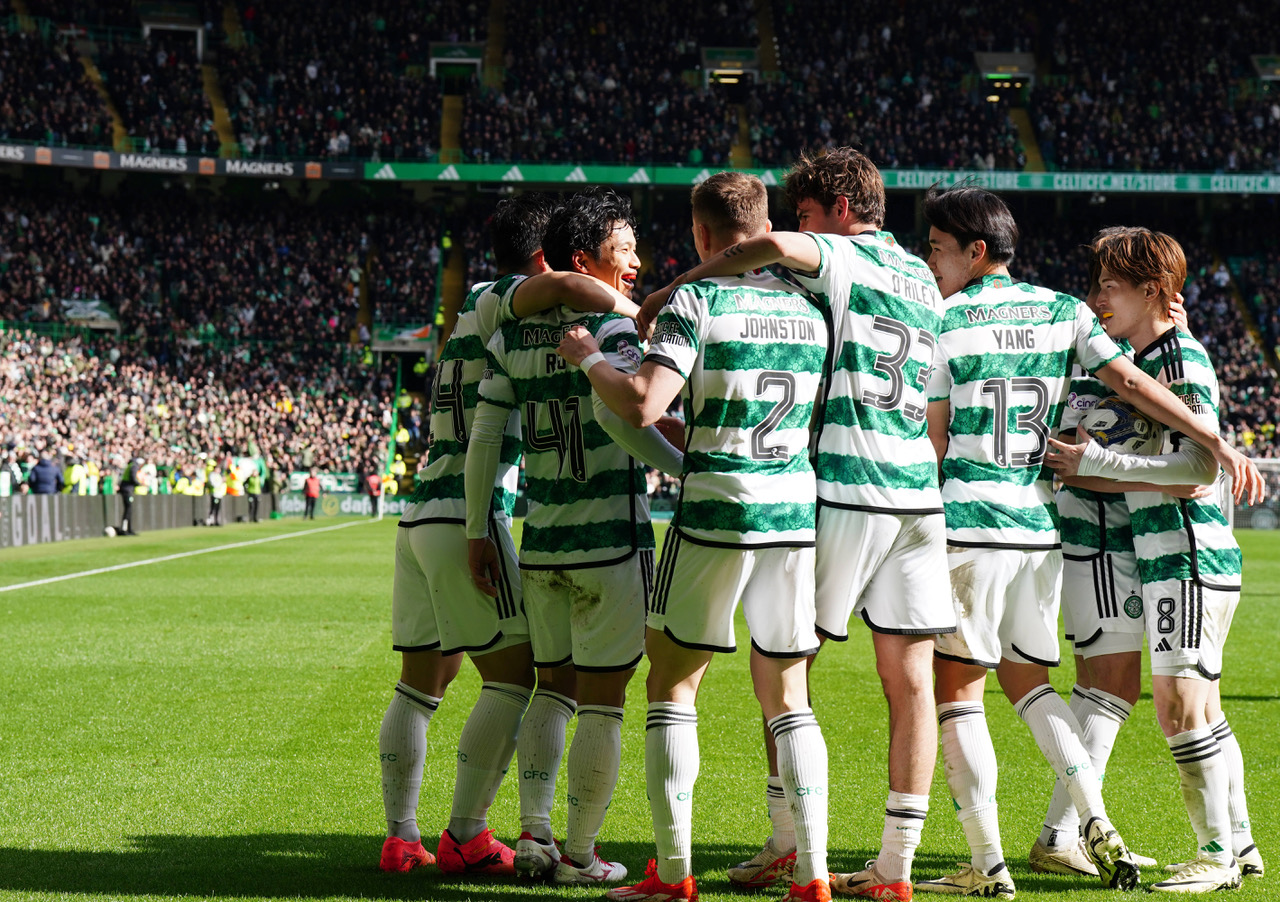January 1905 was to be a difficult month for Celtic. It started with an aborted New Year Day game at Ibrox which had to be abandoned because of continual crowd encroachment caused by enthusiasm and a genuine fear of being crushed to death rather than any hostile intent.
This game was followed by a rare defeat for Celtic against Airdrie at Parkhead where a crucial penalty miss by Jimmy Hay was followed almost immediately by Airdrie’s winner in a 3-2 defeat. Airdrie’s victory was commented upon in Scottish society as much as was the other piece of news in early 1905 when in Manchuria in the Russo-Japanese war (an incredibly bloodthirsty affair by all accounts which Britain did well to avoid) the garrison of Port Arthur fell to the Japanese after a prolonged struggle and with an appalling loss of life.
A win followed over Port Glasgow, but then Celtic went down again this time to one of their bogey teams, Dundee at Dens Park. It was quite simply a poor performance on a bone hard pitch on a cold frosty day. Celtic made the mistake of taking the field in rubber soles, but discovered that this particular pitch demanded boots with studs.

Referee Kirkham of Preston, generally regarded as the best referee in Great Britain and who was given a lot of difficult Scottish games to do, refused to stop the game so that Celtic could change back into studded football boots, and so the players had to take it in turns, one by one, to leave the field and change their boots. This rather disrupted things, and Dundee scored twice while this was going on. Celtic pulled one back but to no avail.
Celtic then beat Hibs at Parkhead and progressed to the next round of Scottish Cup by beating Dumfries (not the team that we now know as Queen of the South), but then Sunny Jim on 31 January at 6 Carlton Place, the Headquarters of the SFA got the news that he had been dreading – namely that he had been suspended for a month for his violent conduct against Jimmy Sommen of Partick Thistle. Mr Deans the referee said (with a hint of exaggeration, one feels) that it “was the most brutal he had ever witnessed” but when Young pleaded “excessive provocation” in extenuation, the referee admitted that Young had a point.
An SFA member suggested two weeks suspension, another said two months, but the disciplinary committee compromised and decided that Sunny Jim should be suspended for a month, effectively all of February.

This to Young seemed draconian. It was a first offence, and not for the first or the last time, a trace of anti-Celtic bias was smelt here in some quarters. (Jimmy Quinn would discover that in two high profile incidents – one later in 1905 and another in 1907). Nevertheless, Sunny accepted it, and had no choice but to continue his job as an Iron Turner for a month, and attend Celtic Park only as a spectator. It was agony for him, but he was pleased to see that the team did well in his absence! His loud raucous Ayrshire voice was heard once or twice from the players section of the old Celtic Park balcony.
That winter saw two deaths of football players which affected Young deeply, albeit in different ways. One was that of Rangers player and fellow Ayrshireman Nick Smith who died in early January of enteric fever, a disease that had ravaged Ayrshire that year. While upset at his death, Young could not forget nor forgive the brutal assault on Jimmy Quinn in last year’s Charity Cup final. Indeed, Smith might well have been on Young’s “list”.
He felt differently about Barney Battles who died of flu in February. Battles, now playing for Kilmarnock, had been a great, if occasionally controversial Celt, but he was famously a great hearted fellow whose sociability off the field was in direct proportion to his aggression on it.
Sunny and Barney were not close (although Young’s name is mentioned among the mourners in the newspapers, he was not one of the pall bearers) but Sunny modelled himself on Barney as far as attitude was concerned. Barney, in spite of his infamous “falling out” with the Celtic establishment in 1896, was a great lover of the Celtic club. That was in fact the way that Young was going to be as well. He could not ever exclude the possibility of a disagreement with Maley or anyone else, but he would always love the club.

Young trained hard while under suspension. Celtic were now in the semi-final of the Scottish Cup against Rangers, and had finished their League programme. They had played their 26 games and had amassed 41 points (2 points for a win), but they could still be equalled by Rangers if Rangers won their three games in hand. The end of the season promised to be very exciting.
Young was due back on 11 March, and was expecting to play in a friendly between Celtic and Kilmarnock with the proceeds to go to the widow of Barney Battles (she was pregnant with Barney Battles junior who would play for Hearts in future years), when he was unexpectedly chosen to play for the Scottish League against the English League at Hampden. Donnie McLeod, Alec Bennett and Jimmy Quinn also played in this game which attracted 30,000 to Hampden, but the Englishmen won 3-2 and Young, apparently, did not play well enough to earn a place in the full International the following week at Parkhead against Ireland. Nevertheless he was now proud of his two Scottish League International caps.

It was the game on 25 March at Parkhead, against Rangers in the Scottish Cup semi final which caused serious ructions. Rangers were 2-0 up late in the second half when there occurred the incident which became the talking point of Edwardian Scotland for a few years. It happened when Jimmy Quinn was ordered off by referee Tom Robertson of Queen’s Park for seeming to aim a kick at the head of Rangers Irish defender Alec Craig as he lay on the ground.
What actually happened, as was agreed by all the participants, was that Craig fell on the wet ground and in so doing grabbed Quinn’s leg to break his fall. Quinn then shook his leg to free it of Craig’s hand, and it looked to Mr Robertson that he was aiming a kick. In spite of protests and appeals, not least from the honourable Ulsterman Alec Craig himself who would later testify at Quinn’s hearing, Quinn was sent off.
All hell now broke loose as Quinn walked to the pavilion on the north-west corner of the ground. Some hotheads invaded the field and Mr Robertson had to be escorted to the pavilion by the police while Celtic fans actually carried some of their men off!
Sunny Jim, although incensed by the injustice done to his friend, appealed for calm, as did manager Maley. After ten minutes, the pitch was cleared and an attempt made to restart the game. A further pitch invasion, however, curtailed proceedings, and Celtic conceded the tie which the SFA in any case awarded to Rangers. In truth Celtic 0-2 down and now without Quinn would probably have had no chance of righting matters. It was a sad end, however, to a Scottish Cup campaign, and Sunny had every right to feel sore at what had happened.

What was going on in the League in the meantime? Celtic, as we said, had finished their League programme in Young’s enforced absence in February. Rangers frustratingly kept winning their League games (although they lost the Scottish Cup final to Third Lanark), while Celtic played meaningless friendlies and games in the Glasgow League (a little valued competition played when there were no other games to play!) until Rangers finally caught up with them on 29 April when they beat Morton 2-0 at Cappielow. Both teams had 26 games played and 41 points won, but Rangers would have won the title on goal average or goal difference, for they had scored 83 and conceded 28, while Celtic had scored 68 and conceded 31.
Would the Scottish League decide to employ either of these expedients? Or would they simply share the title, as had happened in 1891, the very first year of the League’s existence when Rangers shared with Dumbarton?
There was a way round this problem. The two clubs were scheduled to play each other in the Glasgow League on May 6. The Glasgow League, as we have said, was little valued and clubs would often play their fringe players or trialists for this competition which was soon to come to an end in any case, when the Scottish League was expanded to allow more teams.
The Scottish League decided to hijack this fixture, move it to Hampden, and make it the League decider. Rangers, who would have been the beneficiaries if they hadn’t done that, didn’t seem to mind or object, the pill sweetened, no doubt, by the prospect of a 30,000 crowd. Annoyingly for Sunny, he seems to have picked up an injury in a Glasgow League match the previous Monday, and was unavailable for this game. He thus sat in the stand and watched his team mates win 2-1, with Alec McNair at right half, and thus Celtic gained their first League title since 1898.
Sunny had of course played in enough games to win a League medal, and there was more good news for him before the end of the season. He won his second Glasgow Charity Cup medal. Having defeated Queen’s Park with a degree of confidence on 17 May in the semi-final, Celtic played Partick Thistle in the final at Ibrox some ten days later.
The teams were:
Celtic: Adams, Watson and Orr; Young, Loney and Hay; W.McNair, McMenemy, Quinn, Somers and Hamilton
Partick Thistle: Howden, Harvey and McKenzie; Walker, Melville and Wilson; Laurie, Gray, Kennedy, Gilchrist and Sommen.
Referee: Mr J Baillie, St Bernard’s
15,000 appeared for this game, thereby contributing a goodly amount to worthy Glasgow charities, but there was also a certain amount of “history” about this fixture, particularly between Sunny Jim and James Sommen who had, of course, been responsible for Sunny’s lengthy suspension in February. But the match, played in intermittent showers, was well controlled by the referee Mr Baillie of Edinburgh, and Sunny played Sommen fairly, never allowed himself to be riled by provocative remarks and hurt Sommen more by his fine play than he would have if he had allowed himself to get angry. It was a mature response to a potentially dangerous situation.
Celtic scored in the first half through Davie Hamilton and Jimmy McMenemy or “the Dancer” and “Napoleon” as they were commonly known, and thereafter, Young, Loney and Hay took a vice like grip on proceedings. Celtic might have scored more in the second half but the score remained Celtic 2 Partick Thistle 0. The Glasgow Herald states laconically “Celtic were always the better team”. Sunny even felt magnanimous enough to shake the hand of Jimmy Summen at the end. The handshake was returned “but none too cordially”, and Celtic had now won three of the four available trophies in season 1904/05.

Celtic fans were now, in 1905, neither “to haud nor to bind” (meaning they were not to be tied down in their exuberant celebrations). After a few years of under-achievement, a new young team was assembling, and the great thing was that they knew that there was more to come. Indeed there was, and it was round about now that stories and a culture grew up about the great Jimmy Quinn and the three musketeers behind him.
A middle aged lady rejected a proposal of marriage because she wanted somebody “young”. “Sorry, he’s already meeriet wi a bairn and bides in Kilmarnock. But there’s Loney, if ye want or Hay…” A Celtic supporter went into a bar and asked for three whiskies. “Young, Loney and Hay”. “Pardon” said the bemused barman. “Ye heard me, ah want three halves of the best!”.
Young kept a low profile in the close season, seldom venturing far from Kilmarnock. He would of course be instantly recognised by his large frame, fair hair and athletic build, something unusual in these poverty and disease ridden days.
He would be seen around the town, but he was a man whom one heard before one saw, talking to everyone, asking about people who were ill, offering his opinion on what the Russians were going to do now that they had lost the war to Japan, discussing the progress of the local cricket team, the need to get rid of the Conservative government of the disliked Arthur Balfour, and of course the Celtic team of which he was such a proud part, with even a mention of his old friends at Bristol Rovers who had won the Southern League in 1905.
“It was me that made them, ye ken!” He also talked proudly about his beloved Flora (as he called her) and his beautiful daughter Maud, now a toddler. Like so many other great Celtic players, before and since, he was disarmingly “just like an ordinary man”.
To be continued…
David Potter








